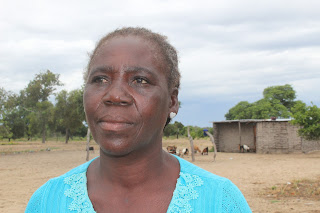 |
| Representatives of beneficiary cooperatives in Kabompo |
Friday, October 30, 2020
KASEMPA ORPHANAGE GETS A BOOST THROUGH LIVESTOCK RESTOCKING EXERCISE
Monday, October 12, 2020
National Livestock Insurance Index Launched
To say that 2020 has been one of the most
unpredictable years in a long while, would be understatement. The COVID 19
pandemic coupled with increasingly visible effects of climate change has made
planning for beyond 2021 slightly harder. This has proven to be true for the
agriculture sector. A herd of cattle free-grazing
While climate change has drastically affected the
rainfall patterns as seen in recent farming seasons and enabled the outbreaks
of disease and pestilences; the COVID 19 pandemic has disrupted some of the
agriculture value chains and hence affected the income of many farmers.
With regard to the changing climate, scientists say
that the developing world will be most affected by this growing environmental
crisis, with smallholder rural farmers being among those who will be most affected.
The Ministry of Agriculture has undertaken strategies
to enhance the adoption of agriculture insurance among smallholder farmers.
Through the Farmer Input Support Program (FISP), the Ministry of Agriculture has compelled FISP beneficiaries
Sunday, October 4, 2020
PROJECT OWNERSHIP:A Success Story from Nakonde
 |
| Muleuke Weir in Nakonde district, Muchinga Province |
Project ownership is integral to the sustainability of the goals and objectives of interventions that are implemented in rural communities. One effective way to achieve this is through community participation which involves communities identifying solutions to their problems and what they are willing to do to implement those solutions.
Community participation assures not only ownership but also accountability and the opportunity to the share benefits of the resources that many rely on.
MEET DOROTHY MAKINA : A CHAMPION OF CLIMATE CHANGE FROM SENANGA,WESTERN PROVINCE
Dorothy Makina is willing to learn more about making her farming climate resilient Like farmers all around the Zambia, those in Western p...

-
Some cattle licking at a dry borehole to try and quench their thirst Much is being said about the impact of the southern regions’ prolonge...
-
A group of young men watch their female counterpart grate lemons as one of the ingredients for the recipe of lemonade they had learned T...
-
Grazing areas are fast depleting and deforestation has adversely affected the already low rainfall pattern of Chirundu As the effects of ...



